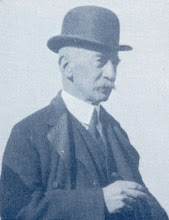In the Autumn of 1756, Lady Marjorie Parks-Sand, a botanist accompanying an expedition through the Alps, discovered the
milkwaist, a species of flower belonging to the exceedingly rare dioecious population in which all plants are either androecious (male, pollen producing) or gynoecious (female, seed producing). It is not known how Lady Parks-Sand settled on the name for this beautiful and almost impossible-to-find flower - indeed very little is known of her relationship to her discovery, as she was also the first victim of the male of the species, the
deadly milkwaist, whose pollen contains a poison fatal to humans. The benign female, however, thrived for a brief period as an exorbitantly expensive delicacy popular especially among the Romanov's ruling house of Russia. As with many other bourgeoise appetites, the harvest of milkwaists was repressed by the Bolsheviks and since all but forgotten. For a time, however, the peculiar nature of the plight of the milkwaist had a foot in the verse of not insignificant poesy, as this sample taken from H. Robert Mendel's 1914 elegy, "O, Unanswering Night" shows:
My woman, my delicate one, uprooted...
May they in their heaven dine on yours,
whilst I like deadly milkwaist await revenge,
plotting amidst a legion of widowers.














No comments:
Post a Comment